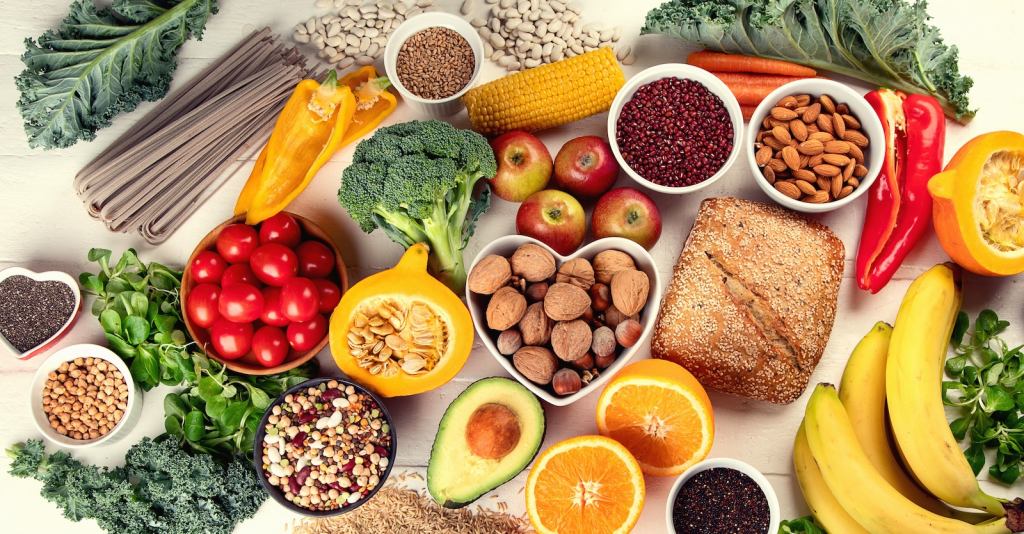Here’s a fact that might surprise you: an estimated 1 in 20 Americans will develop colorectal cancer during their lifetime, making it the third most common type of cancer in both men and women. Yet, experts agree that up to 60% of cases could be prevented with the right lifestyle choices. That means what you eat, how you move, and even how much water you drink directly impacts the long-term health of your colon.

Most of us don’t give much thought to our colon until something goes wrong—constipation, bloating, or digestive discomfort. But your colon plays a vital role in eliminating waste, absorbing water, and maintaining the delicate balance of bacteria in your gut. If neglected, it can lead to chronic problems that affect your energy, immunity, and overall health.
The good news? Keeping your colon healthy doesn’t require complicated diets or drastic cleanses. With small, consistent changes, you can strengthen your digestive system and lower your risk of disease. In this article, you’ll discover 14 proven, practical, and life-changing ways to keep your colon in top shape, supported by science and simple everyday habits.
Why Colon Health Matters
The colon, also known as the large intestine, is more than just the body’s waste processor. It houses trillions of bacteria that regulate metabolism, protect against infections, and even influence mood through the gut-brain connection. A healthy colon means:
- Better digestion and nutrient absorption
- Reduced risk of colon cancer and polyps
- Stronger immune system
- Balanced energy levels
- Improved mental clarity
On the other hand, poor colon health can show up as constipation, chronic fatigue, skin issues, or even anxiety. That’s why protecting your colon is one of the best investments you can make in your long-term health.
14 Life-Changing Ways to Keep Your Colon Healthy
1. Eat a Fiber-Rich Diet
Fiber keeps things moving. Soluble fiber (found in oats, beans, apples) softens stool, while insoluble fiber (found in whole grains, nuts, leafy greens) adds bulk. Together, they prevent constipation and reduce pressure on the colon. Aim for 25–35 grams of fiber per day.

2. Stay Hydrated
Water helps flush waste and prevents stool from hardening. Adults should aim for 8–10 cups daily. Herbal teas and water-rich fruits like watermelon also contribute to hydration.
3. Limit Red and Processed Meat
Studies show high intake of red and processed meats increases the risk of colorectal cancer. Choose lean protein sources like fish, poultry, beans, and lentils instead.
4. Prioritize Probiotics and Prebiotics
Your gut bacteria thrive when you feed them well. Probiotics (found in yogurt, kefir, sauerkraut) add healthy bacteria, while prebiotics (found in garlic, onions, bananas) feed them.
5. Exercise Regularly
Movement helps keep your bowels active. A brisk 30-minute walk or workout improves circulation, digestion, and reduces colon cancer risk.
6. Quit Smoking and Limit Alcohol
Both smoking and excessive drinking have been linked to colon cancer. Cutting back—or eliminating them—protects not just your colon but your entire body.

7. Manage Stress
Stress can disrupt digestion and affect colon health. Practices like yoga, meditation, or simply deep breathing can lower stress hormones that impact your gut.
8. Schedule Regular Screenings
Colonoscopies and other screenings can detect polyps early before they become cancerous. The American Cancer Society recommends starting at age 45, or earlier if you have risk factors.
9. Maintain a Healthy Weight
Excess belly fat has been linked to an increased risk of colon cancer. Balanced eating and regular activity help reduce this risk.
10. Limit Added Sugars
Too much sugar feeds harmful gut bacteria and increases inflammation. Opt for natural sweeteners like honey or fruit, and reduce processed snacks.
11. Include Omega-3 Fatty Acids
Omega-3s, found in salmon, chia seeds, and flaxseeds, have anti-inflammatory effects that may protect the colon.
12. Cook Smart
Grilling, frying, and charred meats can release carcinogenic compounds. Instead, try baking, steaming, or slow cooking to reduce harmful byproducts.
13. Don’t Ignore Bathroom Signals
Holding in bowel movements can lead to constipation and strain. Listen to your body and maintain a regular bathroom routine.
14. Get Enough Sleep
Poor sleep disrupts digestion and alters gut bacteria balance. Adults should aim for 7–9 hours of restful sleep each night.

Practical Everyday Colon-Friendly Meal Plan
| Meal | Example |
|---|---|
| Breakfast | Oatmeal topped with berries, chia seeds, and almond milk |
| Snack | Greek yogurt with sliced banana (probiotics + prebiotics) |
| Lunch | Quinoa salad with chickpeas, spinach, tomatoes, and olive oil |
| Snack | Apple with a handful of almonds |
| Dinner | Baked salmon, steamed broccoli, and sweet potato |
| Hydration | 8–10 cups of water or herbal tea throughout the day |
This plan balances fiber, probiotics, healthy fats, and hydration to keep your colon working efficiently.

Real-Life Inspiration
Emily, a 45-year-old office worker, struggled with chronic constipation for years. After increasing her fiber intake, drinking more water, and walking daily, she not only improved her digestion but also lost 12 pounds in three months.
David, 52, delayed his colonoscopy but finally went in after his doctor’s advice. A small polyp was removed early, preventing what could have developed into something much more serious. His story highlights the importance of preventive screenings.
These examples show how small steps can have big impacts on colon health and overall well-being.
Conclusion
Is fiber really the key to colon health?
Yes. Fiber is the foundation of a healthy digestive system.
Do I need supplements?
Not always. A balanced diet is enough, but probiotics and omega-3s can help if your intake is low.
How often should I get screened?
Every 10 years starting at age 45, unless you’re at higher risk.
*Final Note: This content is for informational purposes only and is not a substitute for professional medical advice. Always consult your healthcare provider for guidance tailored to your health needs.




